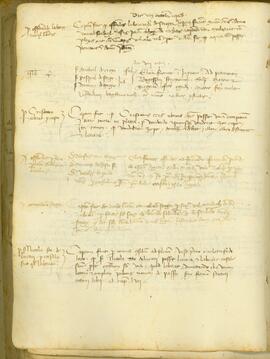Diplomata et Acta (Documents and acts), 19th Century
- HR-DADU-07-HR-DADU-07.3-HR-DADU-07.3.9
- Podserija
- 19th century
The subseries contains correspondence between the authorities of the Republic and its diplomatic and consular representatives in Vienna, St. Petersburg, several Italian cities such as Rome and Venice, and in some North African cities. The subseries also includes correspondence between state authorities and local authorities in the Republic, as well as the correspondence between Republic authorities and Austrian, Russian and French consuls in Dubrovnik. Most letters sent by the Dubrovnik authorities to the fore-mentioned addressees are also in the series Litterae et Commissiones Levantis (HR-DADU-8.1) and Litterae et Commissiones Ponentis (HR-DADU-8.2). The subseries also contains examples of correspondence between the state authorities and the French military authorities in Dubrovnik (1806-1808).
There is scarce evidence of Jews in this subseries. The references can be found in several letters written by the administrator of the consulate of the Republic in Algeria, Naftali Busnak, to the Dubrovnik authorities (vol. 598, no. 111-118). References to Jews are also expected to be found in the correspondence of Republic authorities and its representatives in Rome, as well as in the correspondence of the authorities and the ambassadors of the Republic in the Ottoman cities.

